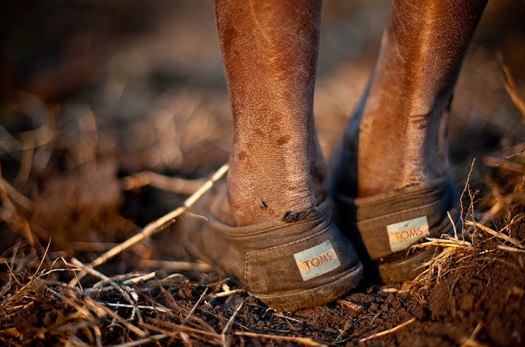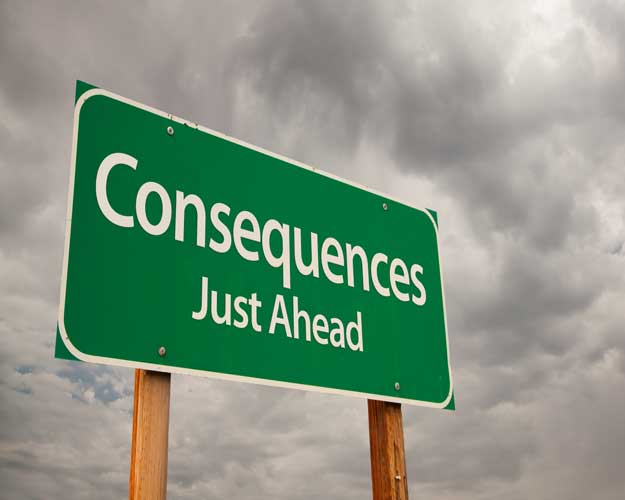No Good Deed Goes Unpunished
"Overcoming poverty is not a task of charity, it is an act of justice. Like slavery and apartheid, poverty is not natural. It is man-made and it can be overcome and eradicated by the actions of human beings."
- Nelson Mandela.
The global aid system yields tremendous implications for sustainable business as a plethora of business models are centered around the premise of donating x% of profits to a certain charity or impoverished nation, or providing, for example, shoes, to people who have none.
 In theory, donating resources to those who lack access is an excellent idea.But what about the local entrepreneurs who are coerced out of business as a result? What happens when these resources cease to be donated to the same village the following year, and the local entrepreneurs have already been forced to shut down? What happens when the receipt of free goods results in a overwhelming sense of dependence, loss of motivation, and acceptance of inferiority?Somewhat paradoxically, this model of giving, which has endured for centuries, can actually create more harm than good.
In theory, donating resources to those who lack access is an excellent idea.But what about the local entrepreneurs who are coerced out of business as a result? What happens when these resources cease to be donated to the same village the following year, and the local entrepreneurs have already been forced to shut down? What happens when the receipt of free goods results in a overwhelming sense of dependence, loss of motivation, and acceptance of inferiority?Somewhat paradoxically, this model of giving, which has endured for centuries, can actually create more harm than good.
"Nobody wants to be a beggar for life." - Herman Chinery-Hesse, software entrepreneur, Ghana, Africa.
Depicting this very truth, an ensemble of filmmakers has produced a documentary, Poverty.Inc, showcasing over 200 interviews filmed in 20+ countries, designed to facilitate the global aid conversation and "unearth an uncomfortable side of charity we can no longer ignore."
[vimeo 109863354 w=500 h=281]
On issues of international development and foreign aid, our country is at a tipping point. While entrenched issues remain, mounting evidence is causing people of all political stripes to question whether their actions are really helping the poor. Operating under the conviction that thoughtful documentaries change culture, we designed Poverty, Inc. to spearhead a broad reconsideration of poverty that is nonpartisan but pro-market. - Kris Mauren, Acton Institute Executive Director.Meet the masterminds behind Poverty.Inc.
-------------------------------------------------------------------------------------------
"One of the things that makes development work so hard is that there are so many different approaches and differences in populations to the help. So one opinion I have gained from being in the Peace Corps is that giving money doesn't help." - Katie Powlen, Environmental Conservation Specialist, Peace Corps 2013-2015, Paraguay.
How has your opinion about poverty and aid changed since before and after your time in the Peace Corps? - TheSustainableInvestor."I honestly can't remember what my opinion was before I joined the Peace Corps. I think I was under the impression that donating money and things was considered helpful development work....After I joined the Peace Corps, my opinion changed. Mostly because I was able to see failed development projects. For example, in the community I live in now, about 20 years ago, a group of American high schoolers came in for two weeks and built a fogon in about 15 different homes in my community. Less than five years later, not a single one of them still worked. And the problem was, these groups came in, built them, and then left. No one from the community knew how they were constructed to know how to fix them. And after all the Americans left, there was no more help for those families."
THE MONEY CULTURE.For as long as currency has been printed, money has transformed the manner in which we think, act, and consume.The chief impediment to the money culture is the persistent poor, despite the money and other goods that are donated. These donations are often inconsistent, leaving the impoverished with the expectation that they must be given things in order to survive.The global aid problem has endured for decades. Irrefutability, the model is not working. Why?The business of poverty is so interdependent and complex, such that some players are actually benefiting. Moreover, inconsistent giving, war, and socioeconomic and political divides create tremendous set-backs in any progress that has been made. Optimistically, foreign aid stems from good intentions. People who have, often feel a desire to give to those who do not. This nature of giving becomes particularly evident in the face of abrupt crisis: funds for disaster relief, donation of food in the face of drought - the list endures.Generally speaking, it seems reasonable to conclude that the consequences of giving are largely misunderstood.Whether the result of naivety or pressure from socially-minded consumers and investors, businesses continuously "give to charity" without truly recognizing the implications.
Optimistically, foreign aid stems from good intentions. People who have, often feel a desire to give to those who do not. This nature of giving becomes particularly evident in the face of abrupt crisis: funds for disaster relief, donation of food in the face of drought - the list endures.Generally speaking, it seems reasonable to conclude that the consequences of giving are largely misunderstood.Whether the result of naivety or pressure from socially-minded consumers and investors, businesses continuously "give to charity" without truly recognizing the implications. Indeed, an issue of such complexity and magnitude feels daunting. How can we possibly fix such a massive problem that has persisted for centuries?
Indeed, an issue of such complexity and magnitude feels daunting. How can we possibly fix such a massive problem that has persisted for centuries?
"Education is the most powerful weapon which you can use to change the world." - Nelson Mandela.
The confluence of education and empowerment bestows colossal impact. As depicted in the film, Poverty.Inc, civilians living in impoverished nations simply want to be included in the conversation.Empowering people to do things, to make things, and to achieve self-sufficiency, can erase the overwhelming sense of reliance, eradicate the desperate seeking of help, and allow those who lack resources to believe in their ability to garner them on their own.LIGHT AT THE END OF THE TUNNEL:Some businesses have recognized that the act of donating has an unforeseeable impact on the local economy. What is seemingly the natural inclination of "giving back", is often the result of a "quick fix solution": fulfilling a perceived immediate need and giving away free clothes, free food, and the like.This is precisely why the Peace Corps requires its volunteers to physically live in a community, based on the premise that actually being on the ground is the only way to truly understand the needs of those whom one is trying to help. The Peace Corps has recognized the importance of education in both directions.Other organizations, such as the Gates Foundation, have made substantial headway in targeting diseases of the likes of HIV and malaria. The XPRIZE initiative has been striving to bridge the gap in education. Progress has been made.
In theory, donating resources to those who lack is an excellent idea.But the simple truth is that instead of sending shoes, the more sustainable solution is to educate the unemployed how to make shoes and run a shoe business.
 Despite Warby Parker's business model of Buy a Pair, Give a Pair, the company is actually funding organizations in developing countries to teach locals how to confer eye exams and sell eyeglasses.As proclaimed on the company website,
Despite Warby Parker's business model of Buy a Pair, Give a Pair, the company is actually funding organizations in developing countries to teach locals how to confer eye exams and sell eyeglasses.As proclaimed on the company website,
It’s a sticky fact of life that kind-hearted gestures can have unintended consequences. Donating is often a temporary solution, not a lasting one. It can contribute to a culture of dependency. It is rarely sustainable. Instead of donating, our partners train men and women to sell glasses for ultra-affordable prices, which allows them to earn a living. More important, it forces our partners to offer glasses that people actually want to buy: glasses that fit with local styles, look good, work well, and make the wearer feel incredible.
Warby Parker strives to empower others. And we can point to a multitude of other examples of companies pursuing similar empowerment goals.But it's not enough.
It's time to rethink poverty.
Featured Photograph by Zoriah Miller.



